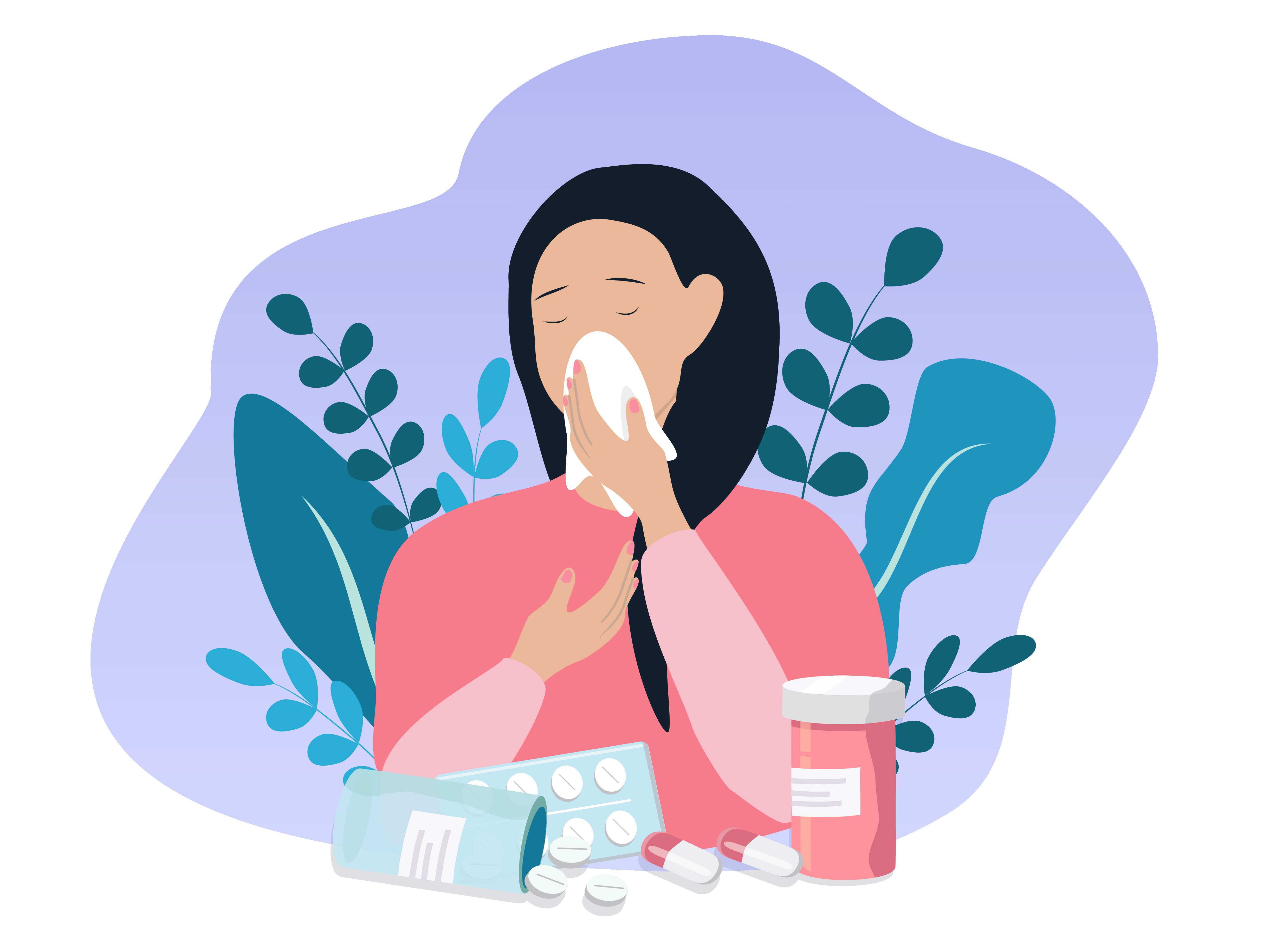
Your immune system is designed to protect you from harmful germs and other invaders.
When it senses something dangerous, it creates antibodies that attack the invader. This process protects your body against disease-causing organisms such as bacteria and viruses.
Sometimes, this exact defense mechanism that helps keep you safe can react to harmless substances like pollen or peanuts, and the body treats them as if they were dangerous.
This is what happens in an allergic reaction.
Food Allergies
Symptoms of food allergies almost always appear immediately after eating the allergenic food – within a few minutes or even seconds.
Symptoms include:
- tingling or itching in the mouth
- itchy red rash (hives)
- swelling of face, mouth, throat, or other areas
- difficulty swallowing
- lightheaded and dizziness
- nausea and vomiting
- abdominal pain
- diarrhea
In severe cases, anaphylaxis can occur. This is a life-threatening medical emergency that demands prompt treatment. Get medical attention immediately if you experience any of the following symptoms:
- swollen tongue
- breathing difficulties
- tight chest
- trouble swallowing or speaking
- feeling dizzy
- fainting or collapse
Seasonal Allergies
Also known as hay fever, seasonal allergies are caused by outdoor allergens like pollen, grasses, and dust.
Symptoms typically appear when the allergen is present in the air, and they usually disappear when that allergen is no longer in season.
Symptoms of seasonal allergies include:
- runny nose
- sneezing
- nasal congestion
- postnasal drip
- itchy, watery, red eyes
- cough
- itchy nose, throat, or roof of the mouth
- fatigue
These symptoms can typically be managed with over-the-counter treatments.
Skin Allergies
Rashes and itchy skin patches may result from food or other allergies, but they can also be caused by contact dermatitis – a skin allergy.
It can be caused by a cosmetic, detergent, fabric, plant metal, or other material that contacts the skin.
Allergy, Cold, or Flu?
Allergies and infections have many common symptoms and can be difficult to tell apart.
Allergies, unlike colds and flues, rarely or never present with:
- fever
- aches and pains
- fatigue
- exhaustion
- chest discomfort
If you experience any of these symptoms, you most likely have a cold or flu and not an allergy.
Treatments for Allergies
Avoidance is the best way to manage your allergies. Your doctor can help you diagnose and identify the allergen triggering your symptoms with blood tests and skin tests.
Treatment strategies typically involve medications like antihistamines and corticosteroids.
In severe cases of anaphylaxis, emergency treatment with epinephrine is necessary. People who know they have a severe allergy to a food or other substance should always carry an epinephrine auto-injector with them.
Immunotherapy may be an option for some people, which involves multiple rounds of injections to desensitize the body to the allergen and prevent future reactions. The risks involved with this treatment mean that this is usually only considered after other treatments have failed.
For most people, allergies are not life-threatening and can be managed with avoidance, medications, and lifestyle changes. Talk to your doctor if you have any concerns.






















